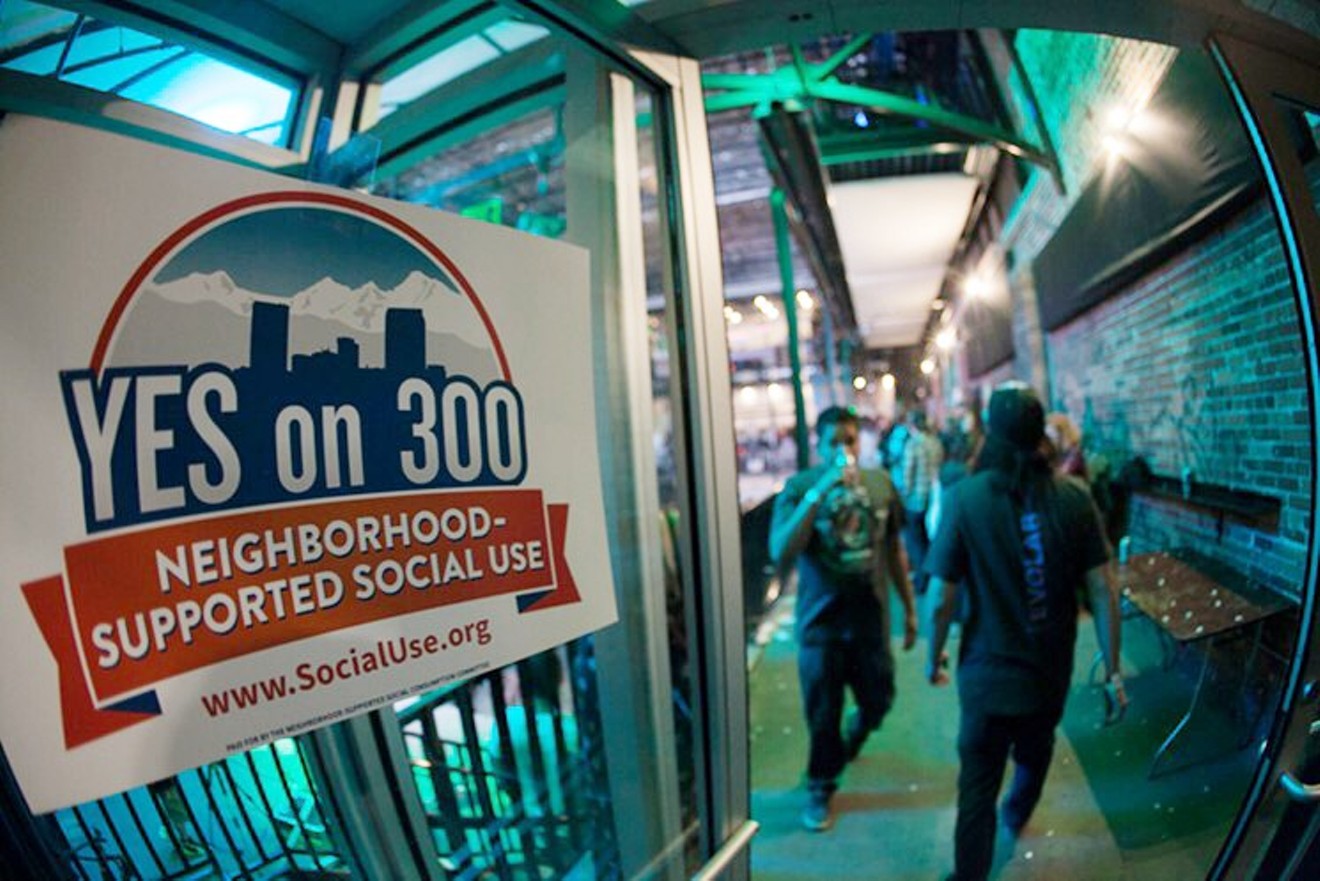Denver released the city's final version of social-cannabis consumption permit rules and regulations on Friday, June 30, setting the stage for private consumption lounges as early as fall 2017, according to Denver officials. The social-use ordinance rules, set up in response to the passage of Initiative 300 by Denver voters last fall, will be part of a three-year pilot program set for review by Denver City Council in 2020.
Proponents of Initiative 300, as well as Denver officials, neighborhood leaders and opponents of social consumption, had been meeting since January to create a set of rules and regulations that would allow qualified businesses to offer marijuana-consumption areas on their premises. Points of contention between supporters of I-300 and opponents included allowing social-consumption areas inside city-owned spaces and businesses with liquor licenses, outdoor odor control, and buffer zones between social-use businesses, residential areas and places frequented by children.
A public hearing was held on June 12 for public feedback on the last draft of the rules, and the final version doesn't seem to have changed much: The buffer zones are still in place, and no establishment with a liquor license may apply for a social-use permit. But requiring patrons of a business with a social-use area to sign a waiver regardless of whether they plan to consume cannabis, a provision included in a previous draft, was left off the final rules.
Although nothing was official until the rules were released today, Denver Department of Excise and Licenses Executive Director Ashley Kilroy says she doesn't expect anyone to be surprised. The city had created a Social Consumption Advisory Committee shortly after I-300 was approved, and the group met six times between January and April to discuss how Denver should handle social-consumption permits.
"My takeaway from the public hearing and written comments we received was that a majority of the feedback was supportive of the rules as they were," Kilroy says. "I think everybody really appreciated the process. Members of the work group were not shy to share their opinions."
Emmett Reistroffer, a member of the committee and the campaign director for I-300, says the committee had a few questions for the city about the final rules and regulations, and adds that he still has issues with several requirements, specifically the property restrictions.
"I am pleased to see some technical improvements were incorporated in the final draft that a lot of us presented concerns about, but there are still fundamental parts of these rules that don't represent the intentions of the initiative," he says. "The proximity restrictions combined with the zoning restrictions go so far that we're worried about finding enough businesses that qualify for them."
Despite how restrictive he finds the rules to be, Reistroffer says he is committed to working with local business owners who want to set up a public-consumption area. However, if few businesses apply for permits because they're discouraged by all the restrictions, as he fears will happen, his team is prepared to go back to the drawing board.
"Only time will tell, but I am worried and already thinking about if six months or a year goes by, and very few permits have been issued, then we might have to go back to city council to create another initiative," he says. "Right now, it looks like it'll be coffee shops or art galleries holding special events." In the meantime, Reistroffer plans to create a city map showing what zones would qualify for social-use permits.
Supporters of I-300 have also taken issue with restrictions on advertising and prohibitions against city-owned spaces allowing special events with social cannabis use, such as a marijuana-friendly Red Rocks Amphitheater concert or City Park Jazz event.
But Kilroy believes the rules serve in all of Denver's best interests. "I think Denver's taken the approach of the implementation of marijuana all the way around from Amendment 64 to I-300 — we're going to implement the laws and implement them fairly," she says.
According to Daniel Rowland, director of public affairs for Excise and Licenses, the city's application process has not yet begun; new licensing platforms and city inspections will be required before any permits can be approved. Neighborhoods will also need to approve of a business applying for social use, much as they do a new marijuana dispensary or liquor store. The city plans to start reviewing applications by August, he says.
[
{
"name": "Air - MediumRectangle - Inline Content - Mobile Display Size",
"component": "12017618",
"insertPoint": "2",
"requiredCountToDisplay": "2"
},{
"name": "Editor Picks",
"component": "17242653",
"insertPoint": "4",
"requiredCountToDisplay": "1"
},{
"name": "Inline Links",
"component": "18838239",
"insertPoint": "8th",
"startingPoint": 8,
"requiredCountToDisplay": "7",
"maxInsertions": 25
},{
"name": "Air - MediumRectangle - Combo - Inline Content",
"component": "17261320",
"insertPoint": "8th",
"startingPoint": 8,
"requiredCountToDisplay": "7",
"maxInsertions": 25
},{
"name": "Inline Links",
"component": "18838239",
"insertPoint": "8th",
"startingPoint": 12,
"requiredCountToDisplay": "11",
"maxInsertions": 25
},{
"name": "Air - Leaderboard Tower - Combo - Inline Content",
"component": "17261321",
"insertPoint": "8th",
"startingPoint": 12,
"requiredCountToDisplay": "11",
"maxInsertions": 25
}
]













